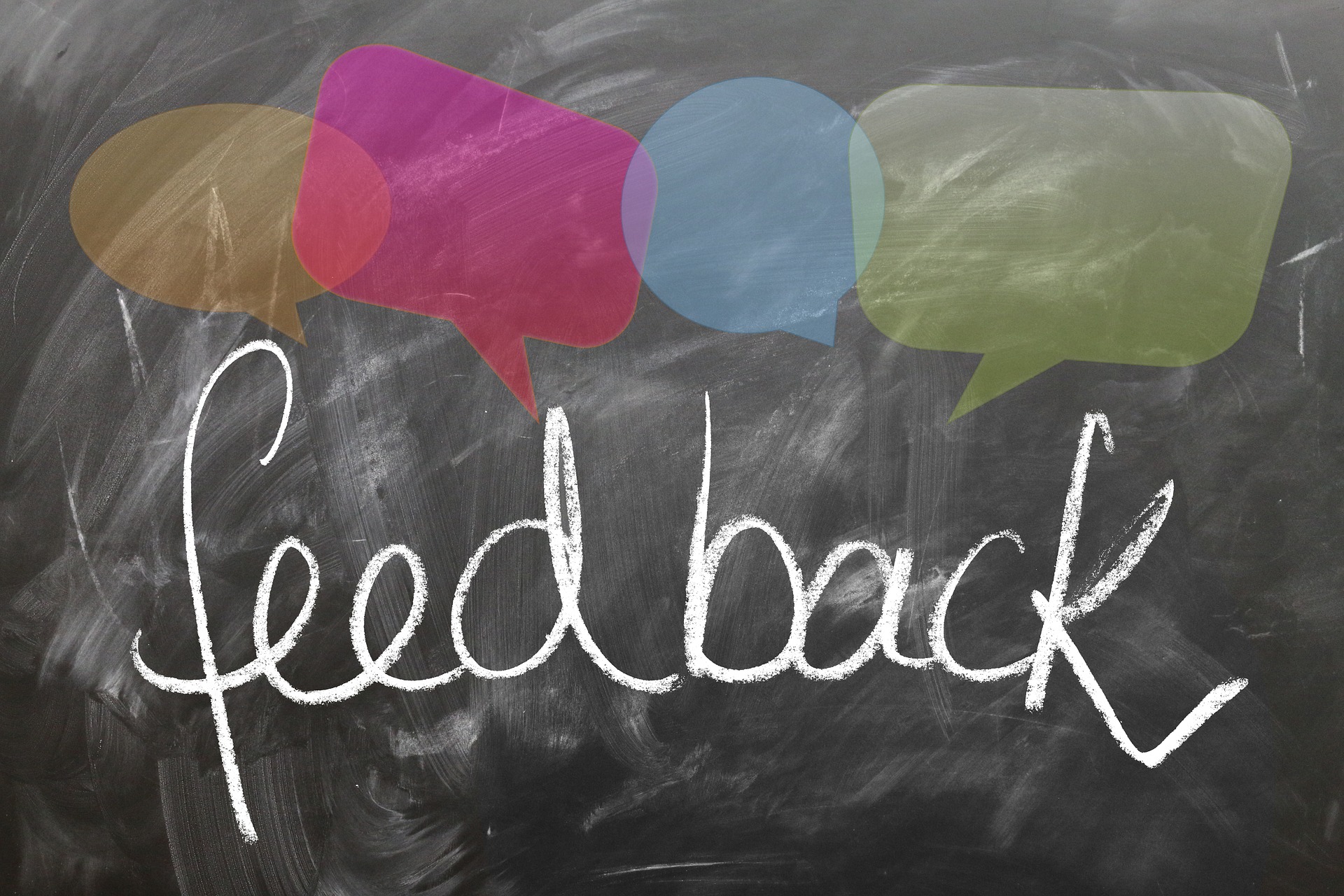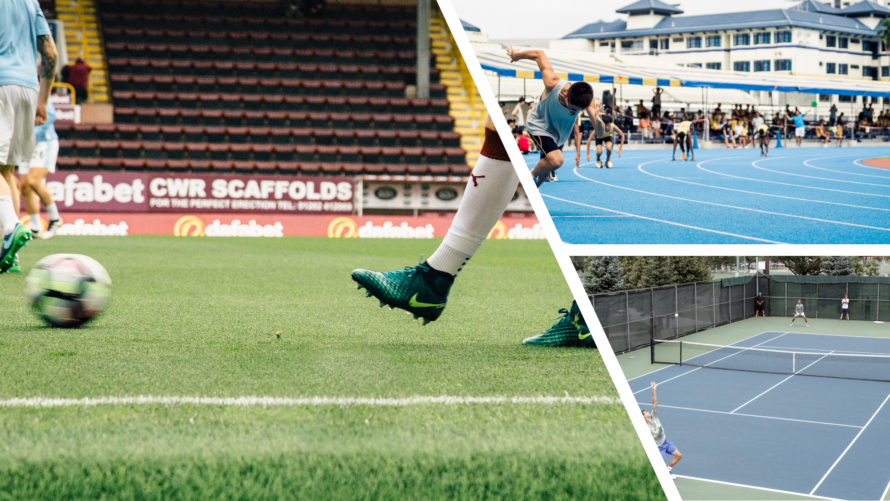I am a personal soccer trainer and recently several of my athletes have asked, “can NLP enhance my sports performance?”
I asked them, what do you know about Neuro-Linguistic Programming?
One of them said they had read an article.
The others had overheard trainers at the gym talking about it.
Although I have had training in NLP, I didn’t recall any case studies in sports psychology.
That got me thinking.
So, I found some research papers online and talked to a few people about the psychology of athletic sports performance.
Can NLP Enhance Your Sports Performance?
Yes.
Top athletes succeed consistently because they have strong self-belief and great willpower.
Positive self-talk is one tool that they use to consistently achieve their competitive best.
The NLP Meta-Model techniques are useful tools for training, restructuring, and enhancing an athlete’s self-talk.
Meta-Models are also effective for increasing an athlete’s self-awareness and emotional control.
This reinforces the athlete’s belief about the extent to which his or her ability will bring success at specific instants in competition.
Most of my athletes are high-achievers and peak performers, many of them looking for an “edge” that can help them learn faster and perform to their maximum potential more often. Over the rest of the season, I worked with those who were interested in using the NLP techniques I had researched.
Whether you are a coach or have a coach, are working with a personal trainer or are a personal trainer, or just working out alone and looking to learn faster and perform better, this post will hopefully help.
The Psychology of Athletes
There are many, many aspects, to the improvement and enhancement of your performance as an athlete.
That’s whether you’re a professional, semi-professional, Saturday morning amateur, or a retired Sunday afternoon jock like me.
As a personal trainer and coach, I interact with some amazing athletes. However, what I sometimes overlook is that these individuals are not born with their skills. There is a tremendous amount of preparation that goes into performing at a high level consistently. And success depends on both physical and mental toughness.
During my training and coaching sessions, many of my players exhibit what I call mental performance weaknesses. For example, while one athlete may feel the need to reduce pre-competition worry, another may need to improve attention and concentration skills, and others need to experience greater confidence prior to an important event.
Sport and performance psychologists help athletes and professionals to reach peak sports performance and enhance physical ability. For more than 30 years they have understood the importance of including mental practice techniques that form part of a psychological skills training program. They have helped sports programs across the globe to incorporate these techniques into coaching education that helps athletes.
Practical Aspects of the Mental Game
Most modern sports have adopted a performance training and coaching model of periodization that incorporates four foundations of the game – physical, technical, tactical, and mental (psychological) – to develop a player.
The US Professional Tennis Association expanded their use of the model to include two other important elements, the strategic which covers overall game situations, and the environmental which recognizes that nothing in human sports performance works in isolation.
A strong body of research evaluating the qualities of the flow state in athletics and psychological skills training is present in sports psychology. However, I could not get my hands on a practical guide for coaches to apply psychological skills training.
Getting in the Flow or the “Zone”
You’ve heard it, and you’ve seen it, many times. The great sports athlete – Jordan, Ronaldo, Tiger, Federer, Bolt – do something extraordinary on any day or over a period. Every athlete wants that edge, to “get in the flow” and stay there.
When you read interviews with many great athletes you begin to know that they apply the 80:20 rule to their game performance – 20% is physical and 80% is mental. So, if you’re going to find that zone more often you must quit being like most athletes who spend 100% the training time on physical strength and skills. Just imagine if you had a system that could help you spend even 10% of your training time to develop your mental skills. Now you have an “edge.”
What we know in sports is that self-confidence, trusting your own abilities, is a key element in sports performance. From interviews and research, we now understand that self-talk is an important part of that confidence. But it is structured self-talk that can help athletes enhance focus, moderate output, control thinking, and emotions, and it can help trigger automatic execution. We have evidence that structured self-talk – “I will turn my hips when crossing the ball” – compared to motivational self-talk – “I will cross the ball properly” – has more effect in producing positive results for athletes.
Sports psychologists have long recognized the importance of positive self-talk in helping athletes achieve their potential. Everyone who plays competitive sport or who competes at a serious level faces adversity and obstacles to success: physical pain, poor conditions, strong opponents, fatigue. The only way you can succeed in the face of these difficulties is to have powerful self-belief and great determination. Positive self-talk is one tool that you can use to achieve their best in competition.
Based on the premise that what you think influences your actions, self-talk strategies have been developed to direct and facilitate human performance. These self-talk strategies have been enhanced by sports psychologists and others with the use of Neuro-Linguistic Programming, or NLP, techniques. With NLP, you can develop your awareness of your thought patterns, your behaviors, and your language to ensure that everything positively supports and contributes to successful performances.
Your psychological training focuses on how you perform in mentally challenging situations and relates to your motivation to reach goals or objectives. Mental strength is of massive importance in any sport.
Using NLP for Structured Self Talk
NLP is a model of interpersonal communication that looks at the relationship between successful patterns of behavior and the subjective experiences underlying them. NLP presupposes that to make sense of our world, we create models that are not the world itself but representations of it. But in constructing these models we create language limits or blocks that can delete, distort, and generalize our thinking and experiences.
NLP is made up of a diverse collection of psychological techniques to educate us in self-awareness and effective communication and to change our patterns of mental and emotional behavior.
One of the important tools of NLP is the Meta Model, a questioning technique which allows us to uncover what is beyond our model. We can use a variety of questions to purposefully uncover what a person has distorted, deleted and generalized, to understand and reveal more about a person’s model of the world.
Using Meta Models to Identify Distortions
The Meta-Model of NLP techniques can be a useful tool for educating and restructuring of athletics’ self-talk. One of the techniques that I have found that works for my athletes are the is distortion patterns, with a focus on the mind-reading defect.
Distortion is one way we alter our perception of reality to concentrate on that which gives us the most benefit or the least negative impact. This might be where you focus on seeing only the positive in your play, and focusing on that, instead of the negative.
For example, think of the first time you saw Jordan, Ronaldo, Tiger, Federer, or Bolt, and you thought them flawless until you started noticing one characteristic and that started to define them – like Bolt’s kidding around, or Tiger only wearing red on Sunday. You can distort your view and get back to their running or playing.
Understanding your meta-map helps you as an athlete to see the mental blocks that you put in your way and allows you to overcome or eliminate those limiting patterns, and thus improve your performance.
Avoiding the Mind Read
When talking about mind-reading I am not thinking about psychic powers. I’m talking about you the athlete (or coach) using information from your model of the world as fact and make decisions based on it. When you make such assumptions in a relationship with your coach (or athlete), then you’re open to miscommunication and misunderstanding.
According to the NLP view, a person who speaks never gives a complete description of the thoughts behind their words. The speaker will always have a more complete internal representation of what he wishes to communicate.
Typically, the NLP Meta Model is used to question the words that the athlete uses, to improve the quality of his or her self-talk.
The Meta-Model consists of categories of questions which challenge your linguistic distortion, to clarify generalization, and to recover deleted information which occurs in your external and internal dialogues. Typically, questions are in the form of:
“What [thing], specifically?”
“How specifically?”
“According to whom?”
“How do you know that?”
The answer, “I don’t know”, to a set of questions indicates that the athlete has reached the limit of his or her model of the world.

- Believing you know the thoughts, feelings, intentions, meanings, motivations, or other internal processes of another person – like me your trainer, or your coach, or the referee – without any reasonable, logical observations.
A negative outward example might be:
- “You are just trying to make me look foolish”, as one of my athletes said recently.
- My positive challenge to her was, “How do you know what I’m trying to do?”
- Then she said, “because you know I can’t get it, and you keep telling me to do it.”
- I came back with, “What is the ‘it’ you think you can’t do.”
- “I can’t shoot the ball with my left foot,” she said.
- “You learned how to shoot with your right foot didn’t you?”, I said.
- “Yes, but it’s not the same?” she said.
- “What makes you think it’s not the same?” I retorted.
- “I don’t know”, came my signal.
It is very easy to spot negative self-talk, just as an observer or self-observer. Have you ever caught yourself becoming physically and verbally angry, then lose your cool during a match because things are not going your way, shouting at teammates or the umpire? It also manifests itself in negative self-talk.
A negative internal dialogue might sound like:
“They must be thinking how foolish I look.”
When you first have that negative thought, you can transform it immediately by replacing it with the positive version.
A positive internal dialog transformation might be “I wonder what they’re thinking.”
So, one of the things you can do yourself is to become more self-aware.
- Another way you might also try to mind read is believing that another person knows, doesn’t know, or should know your thoughts, feelings, intentions, meanings, motivations, or other internal processes without direct communication.
A negative outward example might be:
Another one of my players came to me because he was in a slump. I was asking him to come more than once a week when he burst out,” You know what I’m going through!”
Well, taken aback a bit I said, “So that’s what you think.”
“I told you my girlfriend left me a few weeks ago,” he said.
He hadn’t told me.
“How did that make you feel?” I asked.
“Like shit!” was the reply.
“Why did he leaving make you feel that way?” I asked.
“I don’t know” was the reply.
A negative internal dialogue might sound like:
“They can all tell I don’t feel confident right now.”
You should know that this is a very self-limiting thinking pattern, and one I encounter many times in my sessions.
A positive internal dialog transformation might sound like, “They may not perceive how I’m feeling right now.”
Using established techniques, you can improve the way you communicate with yourself and with teammate or coaches.
- Believing that you know that another person doesn’t know or understand what is apparent, what has been or is being expressed, or their ability to understand.
A negative outward example might be:
Self-talk includes all the purposeful and random thoughts that run through your mind as an athlete, even when you’re not competing. And, it includes all the things said both silently and out loud.
Recently, I worked with an athlete who I thought could give more, push past his current level. During one of our dialogs, he interrupted me, saying, “You don’t know how hard I’m working.”
Self-talk can be positive, it can tell you what to do, where to focus, and get you motivated (“You can do it”). Unfortunately, self-talk can also be negative pessimistic, and critical.
My positive challenge was, “So, you think I don’t know how hard you’re working.”
“No, I don’t think you do”, he said.
“Tell me, how hard are you working?”, I said.
“Very hard, coach,” he said.
“How do you know that?”, I asked again.
“Um, ah, I don’t know.”
A negative internal dialogue might sound like:
“My coach just can’t understand despite my efforts to communicate.” This is one of the internal dialogues that many of my athletes bring.
Communication is an important part of NLP. NLP can help coaches understand how each player responds to different types of communication and what makes them tick. But it can also help you as an athlete to tailor your communication to have a good dialogue with your coach.
A positive internal dialog transformation might sound like “My coach doesn’t seem to understand what I’ve been trying to communicate.”
- Believing you know an unknowable future for yourself or others.
Your self-talk can be like an internal coach, encouraging you, boosting your confidence, believing in you, and motivating you to achieve your goals. Or it can be like an internal bully, undermining you, criticizing you and beating up on you when you are down.
Recognize that negative self-talk is going to occur; the key is to not focus on the negatives and instead focus on the positives.
A negative outward example might be:
One of my athletes, a 17-year-old, was trying to make the top team at his club. After a month with me, he blurted one evening, “I’ll never make the team.”
I said to him, “So, you’ll be surprised when you make it?”
“I’ll never make it”, he said.
“And what makes you think that?” I asked.
“I don’t have the speed of play”, he said.
“According to whom?” I asked.
“Um, no one I guess. I don’t know”, he said.
“Then let’s work on it”, I said.
Using Self-Talk
Everyone who plays competitive sport or who competes at a serious level faces adversity and obstacles: physical pain, poor conditions, strong opponents, fatigue. The only way you as an athlete can succeed in the face of these difficulties is to have powerful self-belief and great determination. Positive self-talk is one tool you can use to achieve your best in competition.
You can work with your coach, trainer, or partner to help you to become aware of the actual words you use in self-talk and daily speech about your opponent, referees, and coaches as a mind-reading. If you detect any negative words you should stop the thought and transform the words or thoughts according to Meta-Model method.
As mentioned earlier, structured self-talk is better. So, don’t give yourself a pep talk, follow your own instructions. If you catch yourself saying “you can do this!” when you’re practicing a technical skill, or in a game situation, stop the thought, and be sure to spell it out. Change your silent conversations with yourself to talk like “focus,” or “bend the knee”, or “follow through after the shot (or stroke).”
The mental aspects of sports are every bit as important as the physical aspects. Being in the right frame of mind can boost your performance and give you an advantage. Some of the questions to ask yourself as you have self-talk, and to answer:
- How do you know that he feels that way?
- How do you know she thinks that?
- And how do you know he has that intention?
Words make up only approximately 7% of our communication. Those words, however, contain incongruence, limiting language, and clues to limiting beliefs, stuck states, and limitations. NLP techniques can help you eliminate your inhibitions and worries allowing you to be your best. Meta-Model mind-reading helps you be aware of sentences that you use in self-talk and makes you aware and concentrate on reality.
One of the most important things for an athlete who wants to participate in competition is having mastered his cognitive processes and emotion.
The NLP Meta-Model techniques are useful tools for training, restructuring, and enhancing an athlete’s self-talk. Meta-Models are also effective for increasing an athlete’s self-awareness and emotional control.
It is not just professional players that can benefit from Neuro-Linguistic Programming. Whether you play for your high school, a local club, or professionally, learning NLP will make you a better player on the pitch and a better person off the pitch.
There are more than 300 “violations”, as the different meta-model structures are called. As I continue to uncover more of these Meta-Model techniques that relate to your sports performance I will share them to help you improve.
References
Tennis Education, Tennis-Teacher Certification, http://www.uspta.com/default.aspx?menuitemid=2192
Bandler, Richard, and John Grinder. The Structure of Magic I: A Book about Language and Therapy. Science and Behavior Books, 1975, by the co-founders of NLP.
Hatzigeorgiadis, Antonis, et al. “Self-Talk and Sports Performance.” Perspectives on Psychological Science, vol. 6, no. 4, 2011, pp. 348–356., doi:10.1177/1745691611413136.



